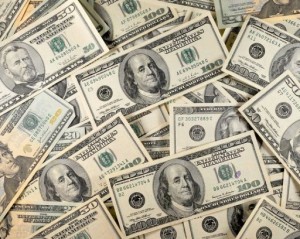Nasser Youssef
Mokhtar Youssef, member of the Board of Directors with the United Bank, stated that stabilising Egypt’s foreign currency reserves was a positive sign and that expediting the transitional period is an important factor to regaining economic stability.

“The increases witnessed during the previous three months were largely incidental, Youssef explained, noting that ‘yellow transfers,’which amounted to $408.37 million from the Iraqi government were a primary factor.”
Analysts from the banking sector conquered, expressing that the increase in foreign currency reserves over the last three months was incidental and not a result of direct foreign investment.
According to their analysis, grants and loans that the state received recently were the main reason that the Central Bank was able to stabilise Egypt’s foreign currency reserves, which had begun to be rapidly deplete after the revolution.
There is a high probability that Egyptian foreign reserves would fall again given the absence of political stability and the growing tension between President Mohamed Morsy and the Supreme Council of the Armed Forces.
At the end of June 2012, foreign reserves stood at $15.533 billion, compared to $15.515 billion the previous month. From March to April 2012, foreign reserves rose from $15.2 billion to $15.5 billion.
An official with the National Bank of Egypt (NBE) said that Saudi deposits with the Central Bank of Egypt (CBE) and the Iraqi “yellow transfers” marked the beginning of stabilising foreign currency reserves after a period of decline.
He added that last April, the reserves saw their first increase since December 2010, when they stood at approximately $36 billion. The reserves steadily declined from that period to reach their lowest point at $15.12 billion last March.
The government offered $2 billion in treasury bills denominated in dollars in order to counter the continued decline.
Youssef said that foreign direct investment is still weak and fell short of Egyptian hopes.
As such, he did not predict a full economic recovery soon.
According to the CBE, foreign investments in Egypt in the third quarter of the 2011-2012 financial year reached $3.13 billion, compared with nearly $2.49bn that left the country in the same period, a net increase of $640 million.
The second quarter of the same fiscal year witnessed net losses of $858.2 billion.
Youssef elaborated that encouraging investment is a priority for Egypt’s foreign currency reserves to rise.
Net investment during the third quarter of the 2011-2012 fiscal year was small, according to Youssef, recommending that the government must work toward reviving investment by maintaining political stability and addressing the concerns of foreign investors, especially from other Arab countries.
Investments from Arab countries reached $355.8million in the third quarter of the last fiscal year, compared to $362.1 in the second quarter of the same year.
Arab investments in the fourth quarter of the 2010-2011 fiscal year equalled $378.6 million.
The United Arab Emirates led the list of Arab countries investing in Egypt.
UAE investments fell from $186 million in the second quarter of the previous fiscal year to $176.9 million.
Saudi Arabia was in second place, with investments falling from $109.2 million to $79.6 million.
Kuwaiti investments came third, with investments falling from $17.3 million to $15.5 million.
Qatari investments rose from $3.4 million to $13.2 million while Bahraini investments fell from $12.6 million to $8 million.


